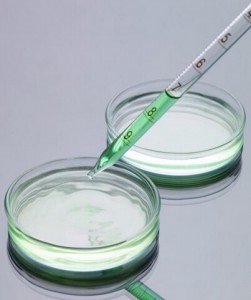As is known, a variety of traditional methods can be applied to obtain peptides, such as microbial fermentation process, acid process, gene expression process, and more. With the increasing demand of biotechnological progress, necessary experimental techniques in peptides should be taken into consideration. A brief analysis of main three methods is as followed.
 1. Acid Process
1. Acid Process
Technically, acid process means obtaining peptides by catalyzing proteins with chemical acids. Different from electrical method that has low cost in production, acid process can be regarded as a large investment, because it covers a complex procedure. It is a little difficult to control the molecular weight and might produce some chemical residues, which makes it hard to form a functional platform. Based on the fact, it’s very difficult to achieve industrial production.
2. Microbial Fermentation Process
Generally speaking, current production technology of microbial fermentation process mainly makes use of modern microbial fermentation technology, transforming macromolecular immunoglobulin into small peptides by controlling microbial metabolism and fermentation conditions. In this way, peptides with a different amino acid sequencing and molecular weight could be produced. In addition, during the fermentation process, those produced free amino acids will be absorbed and used by microorganisms and won’t produce feedback resistance against microbial metabolism.
Actually, in terms of microbial metabolism, it can transport and rearrange the amino acids and small peptides, trying to modify and recombine some certain peptides. For example, soybean peptides that use soybean meal as the raw material can be produced through microbial fermentation process; such peptides changes the inherent soy protein of amino acid sequence, which modifies peptides’ hydrophobic amino terminus. Thus, the soybean peptides can have a higher activity without bitterness, which at the same time gives soybean peptides some biological activity functions.
3. Enzymatic Process
Enzymatic process generally uses enzymes to catalyze proteins, which has realized breakthrough and innovation on the basis of traditional methods, adapting to the low-carbon economy and environmental protection requirements. It is useful in peptides synthesis as well. Compared with other methods, this unique process is simpler and requires less investment, which makes it suitable for industrial production. In addition, enzymatic process enables peptides strong activity and diverse biological functions.
In sum, experimental methods of peptides belong to the high-tech biological engineering fields, which have been widely used in pharmaceutical industry. Given the fact, such issues require more concerns. Thus, maybe peptides can have a wide range of uses and broad development prospects.